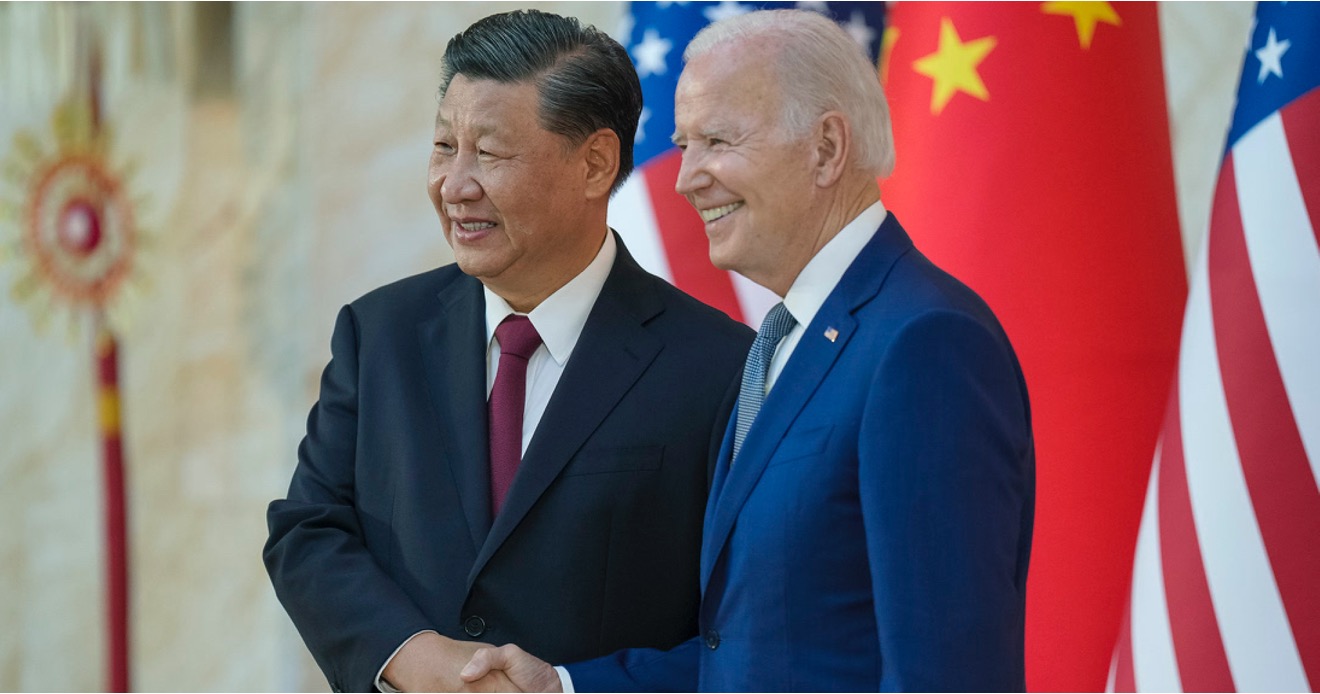Follow us on Telegram for the latest updates: https://t.me/mothershipsg
President Joe Biden of the U.S. and President Xi Jinping of China met ahead of the Group of 20 (G20) summit in Bali, Indonesia and agreed that nuclear weapons should not be used in Ukraine.
They also both opposed threatening to use nuclear weapons in Ukraine, which is being invaded by its neighbour Russia.
First meeting after big changes
This was the first in-person meeting between the two world leaders since the Communist Party Congress in China, which confirmed Xi's election to an unprecedented third term as general secretary of the party.
The meeting also came after the Democratic party, which Biden leads, secured control of the U.S. Senate for the next two years following the midterm elections.
https://mothership.sg/2022/11/us-democrats-keep-senate
Accord
According to a press statement from the White House:
"President Biden and President Xi reiterated their agreement that a nuclear war should never be fought and can never be won and underscored their opposition to the use or threat of use of nuclear weapons in Ukraine."
Ukraine is fighting a war against Russia after the latter launched an unprovoked invasion in early 2020.
It recently recorded a major victory by liberating the city of Kherson, which had fallen early in the war.
Russian President Vladimir Putin has previously threatened to use nuclear weapons if Ukraine continued offensive operations, although he has also denied intending to use nuclear weapons.
The press statement from China's foreign affairs ministry does mention Ukraine, and China's support for peace talks, but does not mention nuclear weapons or strikes:
"The two presidents also exchanged views on the Ukraine crisis and other issues. President Xi pointed out that China is highly concerned about the current situation in Ukraine. He noted the four points about what must be done he had proposed soon after the outbreak of the crisis and the four things the international community must do together he had suggested recently.
Facing a global, composite crisis like the one in Ukraine, it is important to give serious thought to the following: first, conflicts and wars produce no winner; second, there is no simple solution to a complex issue; and third, confrontation between major countries must be avoided. China has all along stood on the side of peace and will continue to encourage peace talks.
We support and look forward to a resumption of peace talks between Russia and Ukraine. At the same time, we hope that the United States, NATO and the EU will conduct comprehensive dialogues with Russia."
Taiwan
On Taiwan, the Chinese statement read that the U.S. "respects China's system, and does not seek to change it." It added:
"The United States does not seek a new Cold War, does not seek to revitalize alliances against China, does not support “Taiwan independence”, does not support “two Chinas” or “one China, one Taiwan”, and has no intention to have a conflict with China. The U.S. side has no intention to seek “de-coupling” from China, to halt China’s economic development, or to contain China."
It also said, "The U.S. government is committed to the one-China policy. It does not seek to use the Taiwan question as a tool to contain China, and hopes to see peace and stability across the Taiwan Strait."
The White House statement was broadly similar, although it also highlighted Biden's objections in certain areas:
"On Taiwan, he laid out in detail that our one China policy has not changed, the United States opposes any unilateral changes to the status quo by either side, and the world has an interest in the maintenance of peace and stability in the Taiwan Strait.
He raised U.S. objections to the PRC’s coercive and increasingly aggressive actions toward Taiwan, which undermine peace and stability across the Taiwan Strait and in the broader region, and jeopardize global prosperity."
PM Lee also in Bali
Singapore’s Prime Minister Lee Hsien Loong is also in Bali to attend a summit of the G20 major economies.
Although Singapore is not a member of the G20, PM Lee is attending at the invitation of Indonesian President Joko "Jokowi" Widodo. Indonesia is the current president of the G20.
Top image from POTUS Twitter
If you like what you read, follow us on Facebook, Instagram, Twitter and Telegram to get the latest updates.
